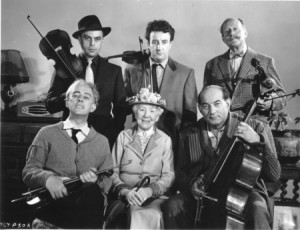 At the Freakonomics blog, Daniel Hamermesh reports on pricing at his local cinema in suburban London:
At the Freakonomics blog, Daniel Hamermesh reports on pricing at his local cinema in suburban London:
Every Tuesday they show a recent movie (e.g., Lincoln is showing on May 21) and charge only £3 ($4.60). Moreover, you get “free tea, coffee and biscuits!” Such a deal—so how can they make money off this, or is it just altruism by the theater owners toward us old folks?
The movie costs no extra rental, and the only variable costs are the wages of the one or two workers who sell the tickets and make the eats. The fixed costs—of the movie rental, the theater and heating/electricity, are irrelevant for the owner’s decision. I should think that, if they can sell even 20 tickets, they will increase their profits.
Hmm, I’m not sure. I don’t know where he lives, so I did a quick search for movie theatres in South London and came up with the Empire Cinema in Sutton, Surrey. Indeed they have a special screening each Wednesday morning at 11:00 specifically aimed at seniors, a film is presented that is already on DVD (this week it is The Impossible), with complementary tea and coffee and all at a “special price” (which is not posted, though I note that their Tuesday price is a discounted £4.95 for all seats, all films).
But does that earn a profit? As Hamermesh notes, it is the marginal cost that matters – what are the additional costs to the cinema of presenting this particular screening? It takes people to serve the tea and show the film, and the rental is not free: my understanding from the fee structure of the Motion Picture Licensing Company is that there is a minimum of £75 per showing for film societies even if no admission fee is charged, and so I would have to imagine a license fee applies as well to established cinemas.
To find whether the showing is profitable, we then compare marginal cost to marginal revenue – how much will total revenues rise from doing this screening? That would depend on the box office taken for this particular screening net of any changes to revenues from all the other movies shown that week. If seniors wouldn’t go to any other movie anyway, then we can just add up what they pay for the Wednesday morning show. If on the other hand the free tea on Wednesdays means they forgo seeing Iron Man 3 on the weekend, we would have to subtract that lost revenue.
If the Wednesday morning show runs at a loss, can we explain? After all, this is a commercial cinema. It might help build goodwill amongst potential movie-goers in the neighbourhood to know that grandma and grandpa are getting a nice morning with their friends at the movies. It might also build goodwill in the Surrey County Council, useful when issues around zoning, parking, or hours come under discussion.
Or it might be that, as Hamermesh hints, there is some altruism. We ought not to treat commercial arts venues as entirely different from nonprofits. Commercial providers actually might want to show some altruism to a group, even if the official mission is to maximize profits, and it is not unknown for nonprofit arts organizations to aggressively pursue maximum returns on their presentations.
Other ideas?

[…] they are careful shoppers, mindful of prices, searching for deals. The discounts at cinemas may be the result of (misdirected?) altruism by the owners, but it also could simply be a realization of different willingness-to-pay by seniors, a group that […]